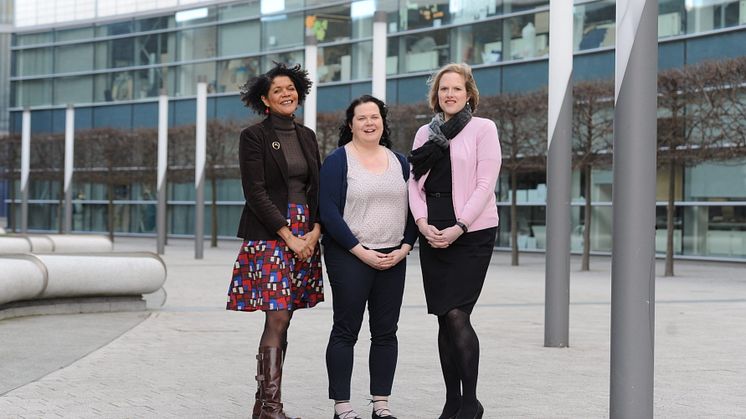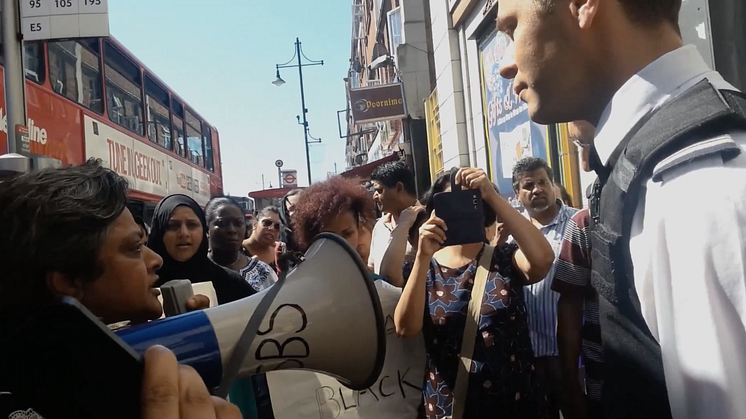Press release -
EXPERT COMMENT: Welcome to Britain in 2017, where everybody is expected to be a border guard
Kathryn Cassidy, Senior lecturer in Human Geography at Northumbria University, in collaboration with academics from University of East London writes about the effect of the new immigration legislation for The Conversation.
British employers will now be expected to pay an annual skills levy of £1,000 if they want to employ a migrant worker from outside the European Union. The charge, which is reduced to £364 for smaller organisations and charities and came into force on April 6, is the latest measure introduced following new immigration legislation passed in 2016.
The changes have been widely criticised, particularly by NHS leaders who have warned it could cost the health service millions of pounds for hiring nurses and doctors from countries such as India and the Philippines.
This levy comes as part of a wider and deeply worrying trend. As the government turns responsibility for administration of its new internal borders to ordinary citizens, Britain is witnessing the emergence of “everyday border guards”.
The impact of earlier changes to immigration legislation are already becoming apparent to those accessing public services. An episode of the BBC documentary Hospital aired in early February showed a critically ill Nigerian woman being asked by NHS staff about payment for her hospital treatment. She had gone into premature labour with quadruplets in the UK on a flight from the US.
Although such charges have been established in the NHS for some time, immigration checks and charging in the NHS have been extended as part of two recent immigration acts passed in 2014 and 2016.
EU citizens who are not working and are sleeping rough have also been targeted by Home Office immigration enforcement. The campaign group Corporate Watch has reported that immigration officers are working with some homelessness charities to identify and deport rough sleepers.
Everyday borders
These changes are of concern to all of those living in the UK – not just vulnerable migrant communities. They show just how far governments are pushing control of their borders into the everyday lives of plural, multicultural, global societies.
Our research in London and the south-east shows how these internal borders are devastating communities. Not only through the rise of cases of verbal and physical attacks on migrants and those from minority communities, currently being monitored iStreetWatch, but also through the outsourcing of border controls to the public and private sectors. The aim of these policies is to disrupt the lives of migrants who do not have permission to work, creating hostility by bringing immigration status into multiple everyday encounters – from the doctor’s receptionist to letting agents and bank cashiers.
As Don Flynn, formerly of the Migrant Right’s Network, argues in our film Everyday Borders, this approach began in the UK in the 1990s, but has been intensified through subsequent legislation. The Conservative-Liberal Democrat coalition government extended the “hostile environment” which intentionally makes life untenable in the UK for undocumented migrants and those without the right to work.
The 2016 Act criminalises the everyday lives of workers whose immigration status does not give them permission to work in the UK. It created the criminal offences of “illegal working”, which carries a sentence of up to six months’ imprisonment and the seizure of earnings. It is now also a crime to drive “when unlawfully present in the UK” and those who are in the country illegally, or who lack the required documentation, are deprived of the “right to rent”.
A climate of suspicion
The impacts of these rules are wide-ranging and stretch far beyond the lives of undocumented migrants. In spite of new powers given to Home Office immigration enforcement teams, the main burden for administering the new legislation falls on people across the UK. Landlords, employers, bank employees, education and health care professionals have become responsible for checking the immigration status of their tenants, employees, students and patients.
Unlike professional border officials, private individuals are legally responsible for border guard duties with no professional training or payment and are liable for prosecution if they fail. Following the passing of the 2016 Act, larger fines were introduced for employers and landlords who do not comply with their border guard roles, as well as prison terms of up to five years.
Activists from housing, health and migrant support organisations are concerned that these policies encourage suspicion and fear of prosecution within communities and are leading to an increase in everyday racism. Landlords are already refusing to rent to people with complex immigration status or those they perceive as “foreign”. Before the law was introduced, the British Medical Association said doctors should refuse to check patients’ immigration status.
The government’s current ideology depends on minimising the role of the state and outsourcing welfare to privatised agencies. But with the case of immigration, the government is outsourcing the control of its borders to all its citizens. Unless we return the border to the margins of our society rather than allowing it to become a dominant feature of our everyday lives, the lives of all citizens will become more precarious and more conflicted.
This article was originally written for The Conversation. To read the original article click here.
Topics
Northumbria is a research-rich, business-focused, professional university with a global reputation for academic excellence. To find out more about our courses go to www.northumbria.ac.uk
If you have a media enquiry please contact our Media and Communications team at media.communications@northumbria.ac.uk or call 0191 227 4571.










